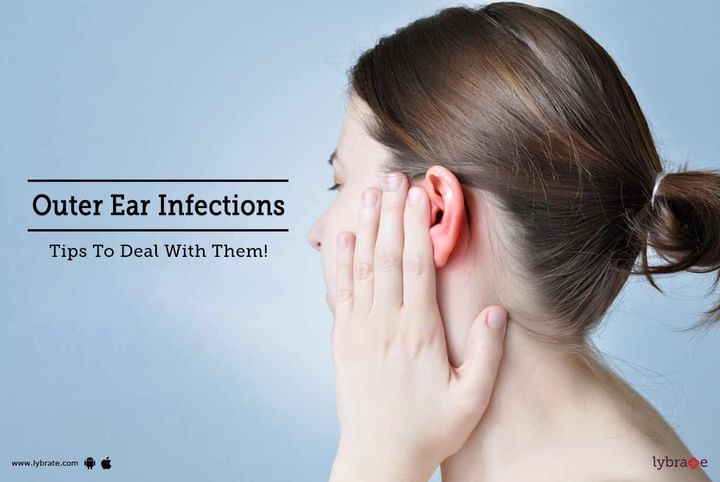Outer Ear Infections - Tips To Deal With Them!
Outer ear infections can be caused by bacteria, virus, or yeast. Also known as swimmer’s ear, as it is very common in swimmers who keep their ears immersed in water for prolonged periods of time. It can also occur when the skin in the outer ear gets infected due to regular use of cotton buds to remove wax. Though it is very common in children, it can be seen in adults too.
The first step in managing an outer ear infection is to identify it.
- A dull, nagging pain in the outer ear is one of the first symptoms of an outer ear infection. Worsening of the pain when the ear is pressed is confirmatory of the infection. In some people, the pain could even spread to the rest of face, along with the cheeks or down the neck.
- Foul-smelling, yellow or green drainage is an indication of outer ear infection. The person could feel that the ear is constantly moist.
- This can be along the ear canal or in the outer ear skin.
- Mild hearing loss, which if untreated, can be progressive.
- Redness of the skin around the ear(s).
- Swelling of the lymph nodes at the base of the jaw.
- General symptoms of an infection including fever, lethargy, reduced energy levels, and overall tiredness.
Management:
Do not treat ear infections on your own. The actual agent causing the infection needs to be identified and treated accordingly. A bacterial infection may require a course of antibiotics, a viral one should be watched and allowed to run its course.
- Visit a doctor: They will check and confirm the infection.
- Ear cleaning: Cleaning the ear with either a suction or a curette. In some cases, there could be hardened wax which needs to be removed to get relief from the infection.
- Antibiotic drops: Either neomycin or ciprofloxacin is used in most cases.
- Acetic acid drops: This helps in keeping the bacterial population intact in your ears.
- Antibiotics: In severe cases, oral antibiotics may be required. Painkillers like ibuprofen may be also taken if the pain is unbearable.
- Saltwater: A home-made solution of vinegar and water or diluted saltwater provides great relief from ear infection symptoms.
- Heat pads: A warm, wet cloth applied on the cheek near the ear can provide great relief. It is advisable to sit when the heat pad is being applied to avoid burns.
- Preventative ear drops: When going for swimming long duration, OTC ear drops can be applied to provide relief.
- Avoid swimming: When the infection has set in and you begin to notice symptoms, avoid swimming for a few days.
In case you have a concern or query you can always consult an expert & get answers to your questions!



+1.svg)
